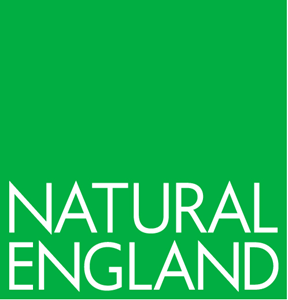Corporate report
Non-qualifying regulatory provisions summary report 2018 to 2019
Updated 21 December 2022
Applies to England
Regulator: Natural England
Non-qualifying regulatory provisions - 21 June 2018 to 20 June 2019
| Excluded category [footnote 1] | Summary of measures, including any impact data where available |
|---|---|
| Measures certified as being below de minimis (measures with an equivalent annual net direct cost to business (EANDCB) below +/- £5 million) | During the reporting period the following measures were introduced but fell below the de minimis (estimated EANDCB in brackets): Introduction of charging for certain types of wildlife licence under the Wildlife Licence Charges (England) Order 2018 (-£300,000) Inclusion of serotine and greater horseshoe bats as additional species covered by the bat mitigation class licence (-£13,000) New guidance on humane trapping of badgers, beavers, otters and pine martens (+£23,000) Introduction of a new wildlife licence to trap beavers (+£13,300) Three general licences (bird control) were revoked following a legal challenge in April 2019. These have been replaced by temporary licences ahead of a public consultation planned for summer 2019. An impact analysis will be made on the final replacements for these licences once the consultation is concluded. |
| EU regulations, decisions and directives and other international obligations, including the implementation of the EU Withdrawal Bill and EU Withdrawal Agreement | Following consideration of the exclusion category there are no measures for the reporting period that qualify for the exclusion |
| Measures certified as concerning EU Withdrawal Bill operability measures | Following consideration of the exclusion category there are no measures for the reporting period that qualify for the exclusion |
| Pro-competition | Following consideration of the exclusion category there are no measures for the reporting period that qualify for the exclusion |
| Systemic financial risk | Following consideration of the exclusion category there are no measures for the reporting period that qualify for the exclusion |
| Civil emergencies | Following consideration of the exclusion category there are no measures for the reporting period that qualify for the exclusion |
| Fines and penalties | Following consideration of the exclusion category there are no measures for the reporting period that qualify for the exclusion |
| Misuse of drugs | Following consideration of the exclusion category there are no measures for the reporting period that qualify for the exclusion |
| Measures certified as relating to the safety of tenants, residents and occupants in response to the Grenfell tragedy | Following consideration of the exclusion category there are no measures for the reporting period that qualify for the exclusion |
| Casework | Between 21 June 2018 and 20 June 2019 Natural England responded to 49,921 items of casework. See the casework breakdown. |
| Education, communications and promotion | Natural England has continued to update and make minor amendments to relevant guidance on GOV.UK in response to customer feedback and requests. It made 35 new publications available on its Access to Evidence portal, the majority of which focused on revised management restoration plans and commissioned reports. It has published 379 items of new information on GOV.UK including 11 corporate reports, updates to class and general licences and updated information on invasive species and sites of special scientific interest. It continues to make available, free of charge, maps and geographic information through its MAGIC website as well as updating and maintaining its designated sites database. |
| Activity related to policy development | During the BIT reporting period, Natural England undertook a series of consultations to extend or create new Special Protection Areas for rare, vulnerable and migratory birds of European importance. It also sought public views regarding the introduction of a district level licensing scheme pilot in Woking. It ran consultations on making byelaws to protect sites of special scientific interest (SSSIs) as well as local consultations to establish new or extend existing SSSIs in Teesmouth and Cleveland, Essex and Poole Harbour. The organisation also undertook 14 open access restriction consultations and reported on the outcome of 22 previous consultations. It published proposals for 50 new stretches of the England Coastal Path or for coastal access and requested information from the public on issues relevant to bovine TB badger control licences. |
| Changes to management of regulator | There have been some changes to the organisation’s senior leadership with a new interim Chief Executive joining in December 2018 and the appointment of a new Chair who took up this role in April 2019. Natural England published an update to its governance in December 2018 and a revised organisational structure in March 2019. |
Casework breakdown
| Area of work | Number |
|---|---|
| Terrestrial planning consultations | 27,941 |
| Marine planning consultations | 1,132 |
| Site of special scientific interest (SSSI) and land management consents and assents | 4,842 |
| Wildlife licensing applications | 16,006 |
-
For definitions of excluded categories, see Annex 1 in Better regulation framework: guidance. ↩

